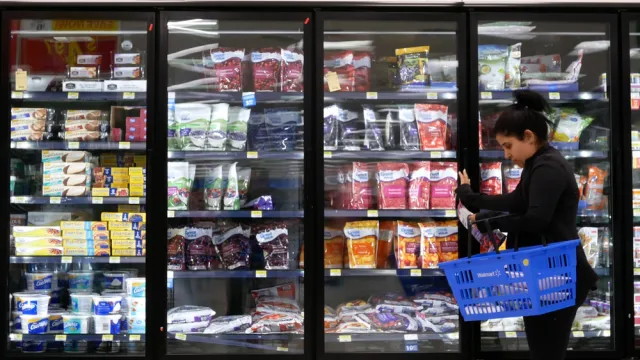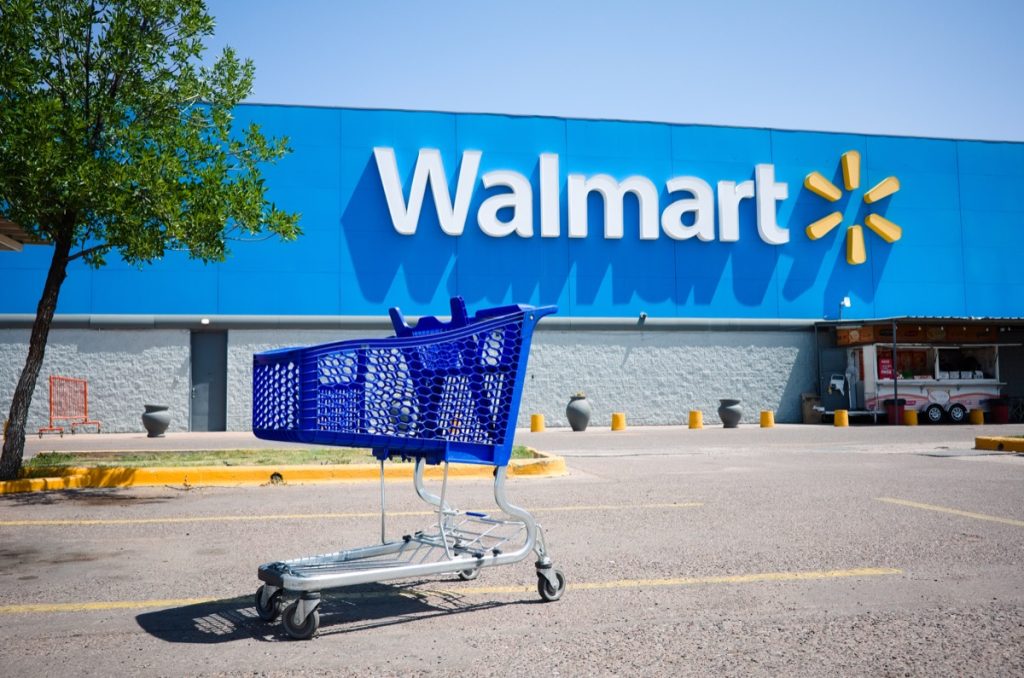Great Value Frozen Fruit Sold at Walmart Recalled Due to Possible Hepatitis, FDA Warns

There’s no denying that having frozen fruit on hand can be a true savior in the kitchen. Besides lasting longer than they would in the fridge or on the countertop, they’re also a surprisingly versatile ingredient. But before you go to make yourself a smoothie or whip up a special dessert for after dinner, you might want to check what you’ve got in your freezer. That’s because Great Value brand frozen fruit sold at Walmart was just recalled due to possible hepatitis contamination. Read on to see if you’re affected by the latest warning.
READ THIS NEXT: Lay’s Potato Chips Recalled Over Health Concerns, FDA Warns.
Frozen fruit sold at Walmart across 32 states is the subject of a new recall.

On June 13, the Food & Drug Administration (FDA) announced that Salem, Oregon-based Willamette Valley Fruit Co. had issued a voluntary recall on various frozen fruit products. The move affects products sold under the Walmart in-house Great Value brand name, including Great Value Sliced Strawberries and Great Value Mixed Fruit packaged in 64-ounce plastic bags and Great Value Antioxidant Blend sold in 40-ounce plastic bags.
The affected items were sold across 32 states from Jan. 24 through June 8, 2023. A complete list of the affected lot numbers and best-by dates can be found on the agency’s notice to help identify the items.
Other frozen fruit products sold at Costco and HEB are also affected.

But Walmart isn’t the only store that will be pulling products from its shelves due to the recall. The move also affects a frozen fruit item sold at Costco stores: Specifically, several lots of Rader Farms Fresh Start Smoothie Blend packaged in a 48-ounce plastic bag containing six 8-ounce plastic pouches. The products were distributed to stores in Arizona, California, Colorado, and Texas from Oct. 3, 2022, and June 8, 2023.
The recall also affects Rader Farms Organic Berry Trio, which is packaged in a 3-pound plastic bag and was distributed to HEB stores in Texas from July 18, 2022, to June 8, 2023. The complete list of lot numbers and best-by dates for both the Costco and HEB items that are part of the recall can be found on the agency’s notice. The company emphasizes that the move affects only the listed lot numbers and purchase dates.
RELATED: For more up-to-date information, sign up for our daily newsletter.
The company pulled the items due to possible hepatitis A contamination.

Willamette Valley Fruit Co. says it decided to pull the frozen fruit products from shelves after discovering that strawberries grown in Mexico included in the blends could be contaminated with hepatitis A. According to the agency’s notice, the contagious liver disease is caused by a virus that can be transmitted through food. Those who are infected can either experience a relatively brief illness that lasts for weeks or develop a more serious illness that can last several months.
Most people who are infected develop their first symptoms within 15 to 50 days after they’re exposed, which normally include “fatigue, abdominal pain, jaundice, abnormal liver tests, dark urine, and pale stool,” according to the FDA. However, those with pre-existing health conditions or otherwise immunocompromised can lead to liver failure.
Here’s what you should do if you have the recalled frozen fruit in your kitchen.

So far, the company says that no illnesses have been reported related to the recall. However, anyone who thinks they may have eaten the affected frozen fruit should contact their healthcare provider to determine whether they need post-exposure prophylaxis (PEP). Anyone experiencing hepatitis A symptoms is urged to contact their doctor immediately.
According to the agency’s notice, customers are “urged to check their freezers for the recalled product” and not to consume it. Affected items should be thrown away or returned to their respective stores for a full refund. Anyone with questions or concerns can also contact Willamette Valley Fruit Co. by calling a hotline listed on the notice.
Best Life offers the most up-to-date information from top experts, new research, and health agencies, but our content is not meant to be a substitute for professional guidance. If you have health questions or concerns, always consult your healthcare provider directly.